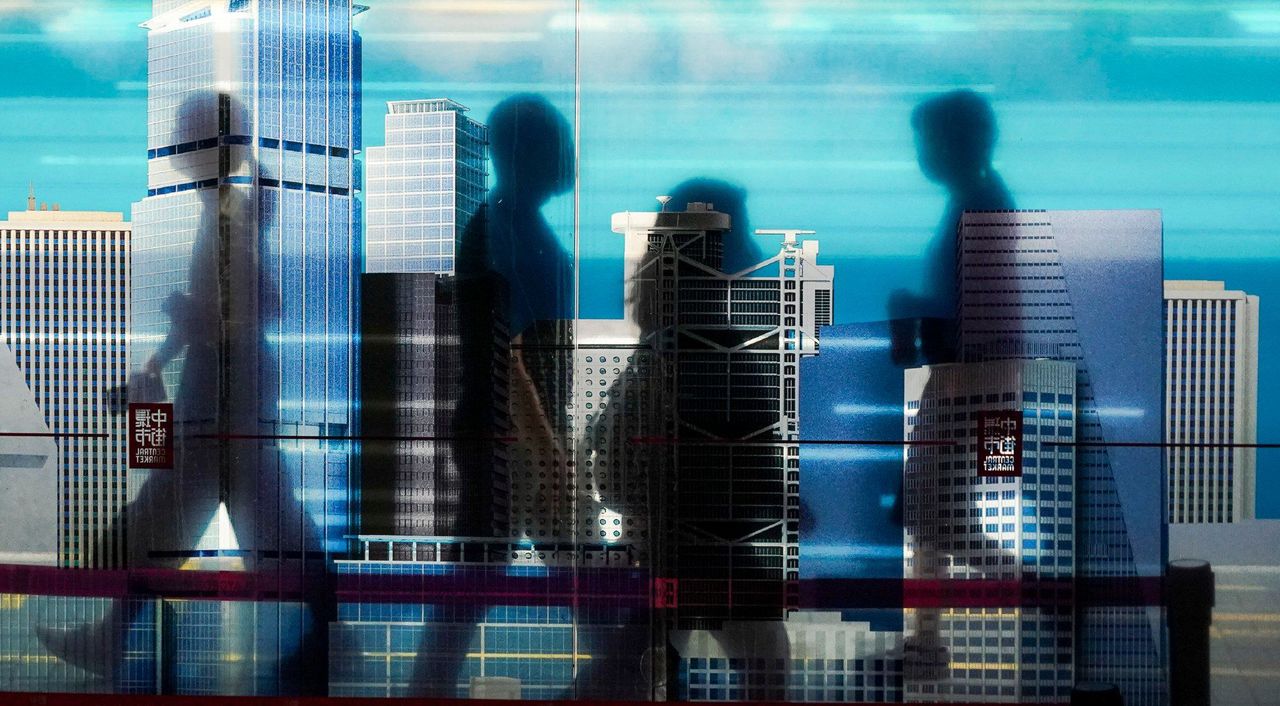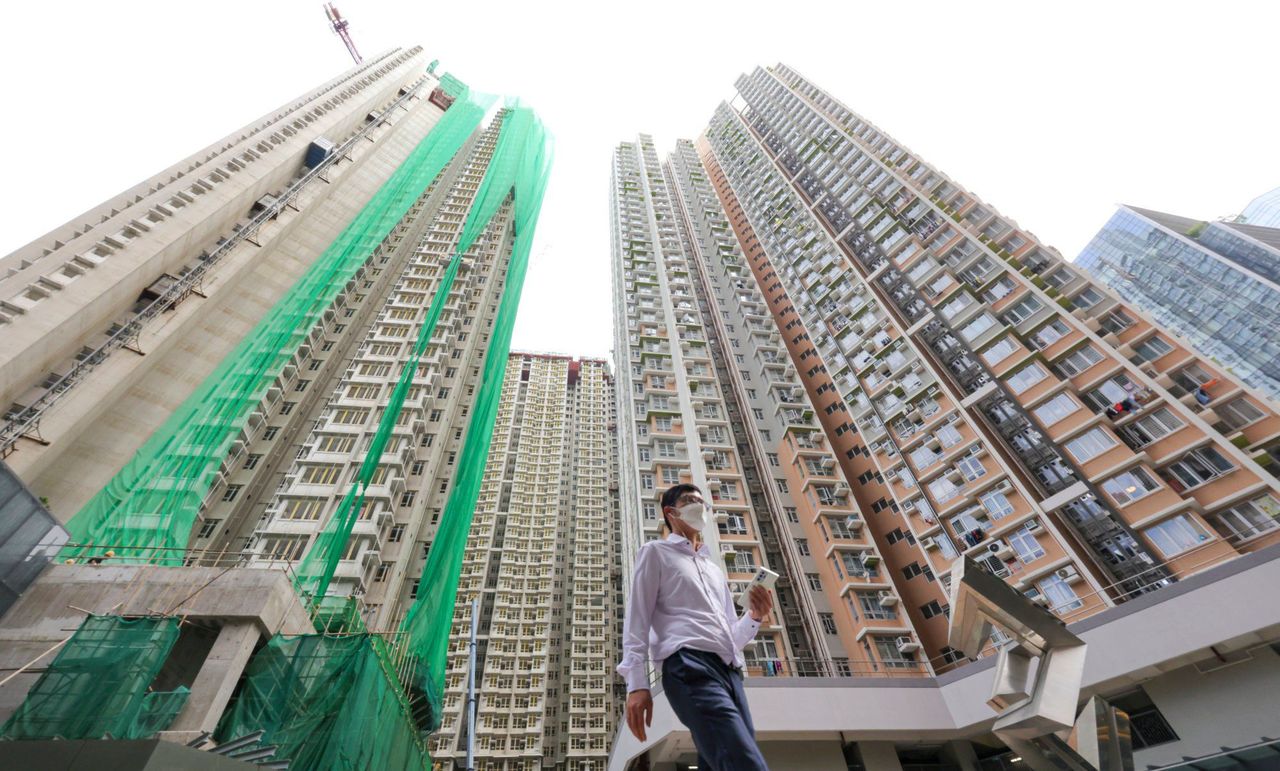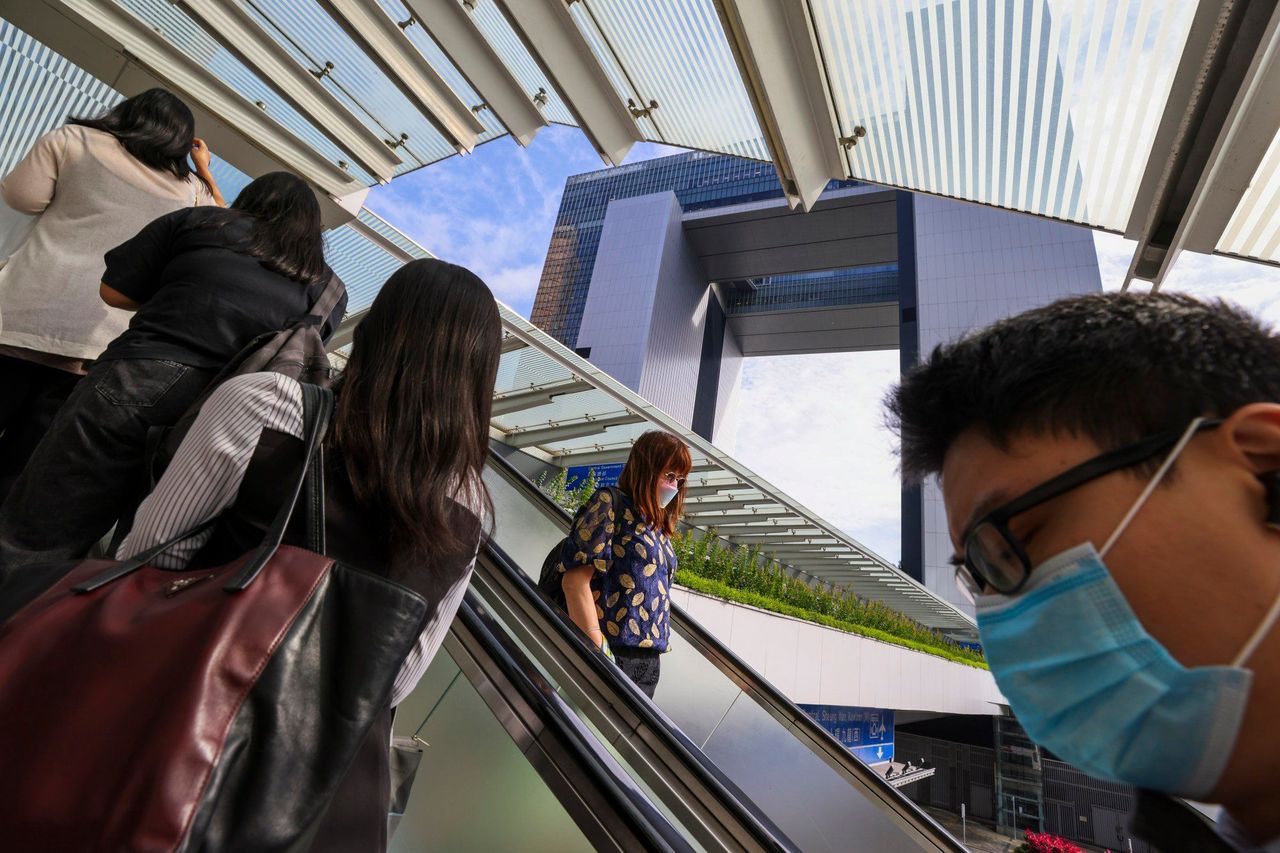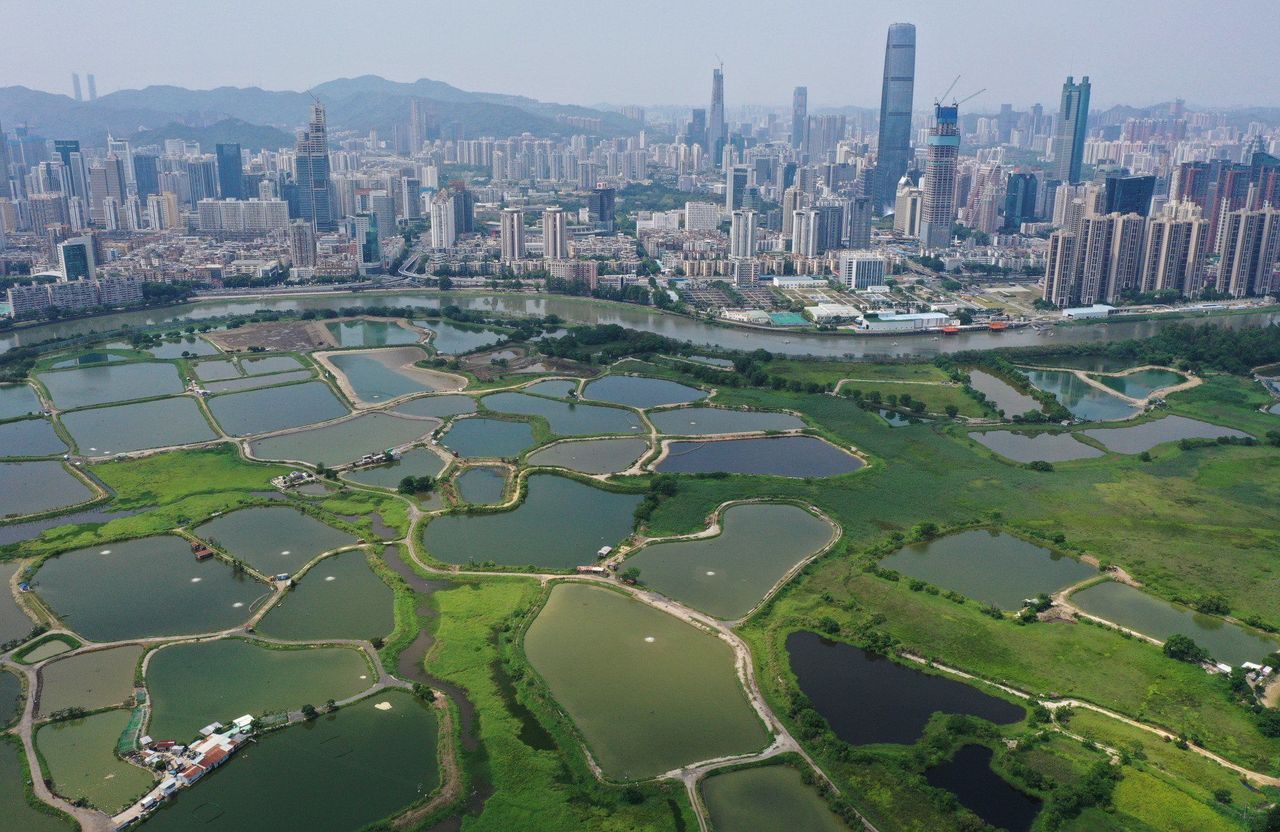Hong Kong News

7 key takeaways from Hong Kong leader John Lee’s first policy address
Hong Kong leader John Lee Ka-chiu presented his first policy address on Wednesday without mentioning much about Covid-19 issues, beyond saying he would stick to science and would prefer an orderly and gradual opening up.
The chief executive instead rolled out a long list of new policies mapping out his blueprint for the next five years, from boosting housing supply to building new infrastructure, enhancing integration with mainland China, and an all-out war to win talent.
He covered these subjects in a speech spanning two hours and 45 minutes – longer than that of his predecessors Carrie Lam Cheng Yuet-ngor and Leung Chun-ying.
Here are seven key takeaways:
1. All-out war for talent
After repeatedly declaring Hong Kong would “snatch” global talent, Lee used a fishing metaphor instead. The city would “proactively trawl for global talent”, seeking to net international or mainland Chinese expertise back following an exodus unleashed by the pandemic.
Listing out seven measures, Lee said his administration would: grant graduates from the world’s top 100 universities a two-year visa; allow employers to hire overseas talent without having to prove difficulties in hiring locally; extend employment visas to three years and refund extra stamp duty to foreigners-turned-permanent residents who are still holding property.
 Hong Kong’s leader has promised to ramp up efforts in the global race for talent.
Hong Kong’s leader has promised to ramp up efforts in the global race for talent.
Lee admitted the local workforce had shrunk by 140,000 over the past two years, and highlighted the need for his administration to go all out to redress the situation. Apart from the individual talent schemes, he also announced the setting up of a unit, called the Office for Attracting Strategic Enterprises, to lure high performing firms from overseas from all sectors, along with their workers and families. A new Talent Services Unit will also be set up.
“Hong Kong is one of the most competitive economies in the world. It also serves as an important gateway connecting the mainland with global markets. We must be more proactive and aggressive in ‘competing for enterprises’ and ‘competing for talents’,” he said.
2. New and bigger public flats
Vowing to provide “breakthroughs” in solving housing woes, Lee announced the construction of some 30,000 new “light” public housing units in the next five years, to boost public housing production beyond 50 per cent, while setting a minimum size for all subsidised flats at no less than 26 square metres.
Those on the waiting list for public housing for three years or more may apply for earlier allocation of new flats, mostly built on unused private and public land, and priority will be given to family applicants. The flats will provide basic facilities, with rent lower than the traditional rate.
“Solving the housing problem tops the agenda of the current-term government. The objective is to let people see hope of getting on the housing ladder earlier and having decent homes,” he said.
 Public housing estate in Diamond Hill.
Public housing estate in Diamond Hill.
In a bold step that other leaders have not taken, Lee ambitiously set out a 4½-year cap on public housing wait time by 2026-27, down from the current duration of six years. The last time Hong Kong saw a waiting time for public housing of under four years was in 2016.
Lee also vowed to provide no fewer than 72,000 private residential units in the next five years.
3. Civil service reform
Beginning his speech by hailing President Xi Jinping for his “encouragement” for the city on July 1, Lee then continued to elaborate his governing belief about upholding “one country, two systems” by safeguarding national sovereignty and security.
“Having restored order from chaos, we must stay alert to threats and dangers, adopt bottom line thinking, and sustain our efforts in safeguarding national sovereignty, security and development interests in order to guard vigilantly against the recurrence of threats,” he said.
But yet, apart from suggesting the government will continue to prepare for the local national security law, Lee did not dwell on political matters or geopolitical tensions beyond saying “certain external forces” had been smearing Hong Kong by giving a distorted picture of life in the city.
 People near the Hong Kong government headquarters.
People near the Hong Kong government headquarters.
Instead, Lee said to lead Hong Kong in moving ahead, he hopes for a “capable government that can deliver results”. The government will update the civil service code to require government employees to have strong awareness of safeguarding national sovereignty and security and launch a special award to recognise “meritorious and exemplary” staff.
He has set 110 indicators, including key performance indicators (KPIs) for monitoring the effectiveness of the government as part of a “result-oriented” approach, while he will set up the Chief Executive’s Policy Unit (CEPU) within this year to gauge public attitudes, while conducting in-depth studies and analyses on mainland policies and international trends.
4. First primary healthcare blueprint
The government will lay out a primary healthcare blueprint this year, which includes setting up an authority to manage services provided by the public and private sector, and rolling out a family doctor system in collaboration with the private sector.
A three-year pilot scheme for chronic illness management will also be launched. District health centres will identify patients with high risks of diabetes and hypertension and refer them to private healthcare services for treatments, with half of the fees subsidised by the government.
The government will optimise the health voucher scheme for the elderly, allowing spouses to share them and extending coverage to providers such as nutritionists and psychologists. The annual amount will also be raised from HK$2,000 to HK$2,500.
The quota for inpatient clinics will be raised from 600,000 to 800,000 per year, with Chinese-Western medicine services being integrated and gradually expanded to more hospitals and diseases.
The authorities aim to shorten waiting time for specialists at public hospitals by 20 per cent and will press ahead with the First Ten-year Hospital Development Plan, which will add about 4,600 beds and about 80 operating theatres in the next five years. The second plan will focus on the hospital infrastructure in the Northern Metropolis.
5. Integration with mainland China
Lee highlighted the importance for the city to better integrate into national development, something that was mentioned in many parts in his report. He will also personally chair a steering group to press ahead with initiatives across the bureaus.
The Hong Kong-Shenzhen Innovation and Technology Park near Lok Ma Chau Loop at the border will be the bridgehead for I&T cooperation between Hong Kong and Shenzhen, Lee said.
 A general view of Lok Ma Chau Check Point at the North West Border in Hong Kong.
A general view of Lok Ma Chau Check Point at the North West Border in Hong Kong.
“We will proactively attract mainland and overseas I&T enterprises to the [park], providing key impetus for the development of an international I&T centre in the Greater Bay Area,” he said.
The Northern Metropolis in New Territories, he added, will emerge as a “new international I&T city”, integrating quality lifestyles, new economies, as well as culture and leisure in the future, and providing synergy effects with its hinterlands.
The San Tin Technopole nearby will connect with Shenzhen’s I&T cluster just across the river, becoming a test bed for innovation.
6. Little on pandemic
As widely expected, Lee did not set a firm timetable on when Hong Kong will further open the international border by scrapping all the medical surveillance required.
In a short note almost towards the end of his about 32,000-Chinese characters report, Lee stressed the importance of not rolling back measures, recapping the series of social-distancing and travel relaxations introduced by his administration.
“The government will continue to move forward with adjustment and enhancement to anti-epidemic measures in light of the actual situation and development. This is to ensure things will be brought forward in an orderly and measured manner,” he said.
Lee added that the government will further ease Covid-19 restrictions once conditions allow, while discussing with the mainland on measures such as reverse quarantine and increasing the quarantine quota in Shenzhen for travellers from Hong Kong.
He also warned of chaos if the government acts too hastily, citing threats from potential influenza outbreaks in winter and imports of new coronavirus subvariants, adding authorities should also take heed of public hospitals’ ability to handle infections.
7. Leaving no stone untouched
Nothing seems to be too small for the city leader to pay attention to. In a report with 150 paragraphs, the chief executive tried to cover all areas, including enhancing citizens’ quality of life, with promises of better public space, facilities and estate environment for public housing residents.
He touched on the near-shore odour problems of Victoria Harbour, saying the government will regularly monitor odour levels at stormwater drain outlets and rectify misconnections of sewer pipes, while highlighting the departments’ efforts in restoring a public back alley in To Kwa Wan that had been illegally occupied for many years.
Lee also suggested a number of leisure activities for residents, such as forming a 60km “Round-the-Island Trail” on Hong Kong Island and providing weekend bazaars at five regions in the territory to foster local economic activities.
For the arts and culture sector, he promised to set up a Mega Arts and Cultural Events Fund to promote the staging of more international shows in Hong Kong, while the government will promote pop culture to go global. There will be more museums, more arts and culture facilities such as cinemas and performance venues for residents.
“Over the next five years, I look forward to working with you all to build a more promising and united Hong Kong where people enjoy living and working,” he said in his ending note.











